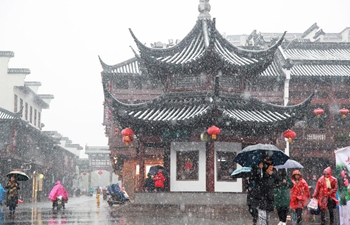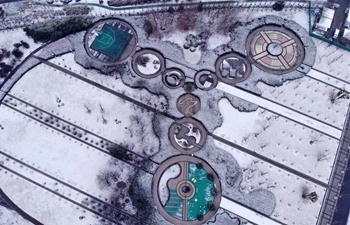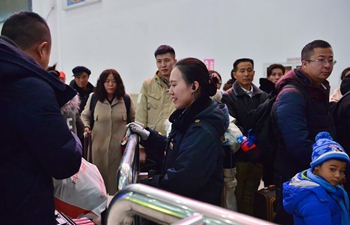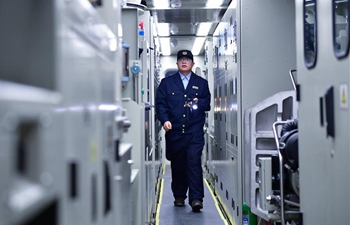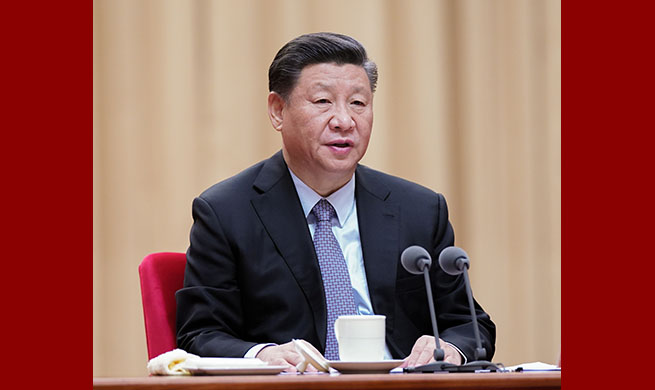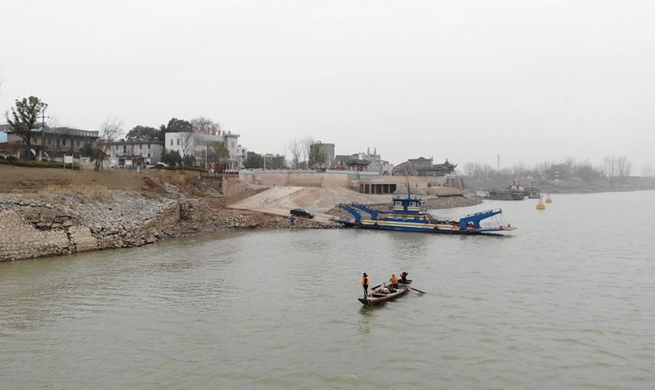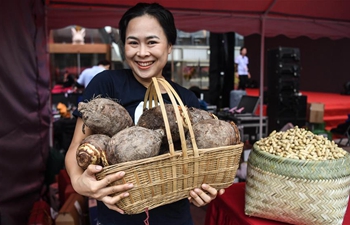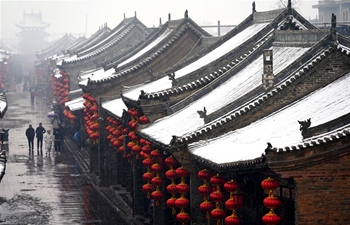BEIJING, Jan. 9 (Xinhua) -- Chinese people are enjoying better and healthier lives thanks to the country's sci-tech achievements, studies highlighted at China's annual research awards show.
FEEDING THE NATION
In China, where less than 8 percent of the world's arable land feeds one fifth of the world's people, food security is a priority for many researchers. Three research achievements on rice were recognized in the 2017 National Science and Technology Awards.
Li Jiayang and his researchers - one of the three teams - found the balance of yield and quality in new hybrid rice varieties.
The cultivation of hybrid rice has spread across China for more than four decades. But while yields have increased, many varieties have failed the taste and cooking tests until recently.
Li's team identified the major gene that regulates yield and quality and used molecular breeding technologies to combine high yield and good taste in a new rice variety.
"Good characteristics can be identified in molecular breeding," Li said. They plan to work on "tailored" hybrid rice varieties in future.
Huang Sanwen, of the Chinese Academy of Agricultural Sciences, won last year's State Natural Science Award for breeding high-yield cucumbers.
With advanced genome sequencing technology, Huang's team mapped the genetic code of cucumbers, shedding light on their origin and evolution.
HEALTHIER LIVES
Professor Li Luming, of Tsinghua University, won first prize in the State Scientific and Technological Progress Award of 2018, for his research on brain pacemakers.
His team made brain pacemakers cheaper, smaller, lighter and more durable, benefiting China's 2 million Parkinson's disease sufferers.
Lung cancer is China's leading deadly cancer. Surgical resection is the key to treat lung cancer in the early and middle stages.
He Jianxing, head of the First Affiliated Hospital of Guangzhou Medical University, created a minimally invasive lung cancer treatment system through technological innovation. Patients can usually get out of bed within hours of the surgery and leave hospital after three days.
Progress in medical science has greatly improved the health level of Chinese people, with average life expectancy rising from 35 in 1949 to 77 in 2018.
CLEANER AIR
In the global drive to curb climate change, China has been consistently delivering on its environmental pledges.
From 2015 to 2017, the government highlighted in its work reports ultra-low emissions from coal-burning power plants.
Gao Xiang and his team developed an ultra-low emissions system to filter pollutants from coal-fired flue gas quickly and cheaply, resulting in cleaner air. It has been successfully trialed in a power plant in Jiaxing, Zhejiang Province.
The system can simultaneously remove multi-pollutants, reducing emissions from a coal-fired power plant to a level even lower than that of a natural-gas-burning power plant.
In January 2018, Gao and his team were awarded first prize in the National Technology Invention Award. The Ministry of Science and Technology said the system had drastically reduced pollutants emitted by coal-fired power plants nationwide.




